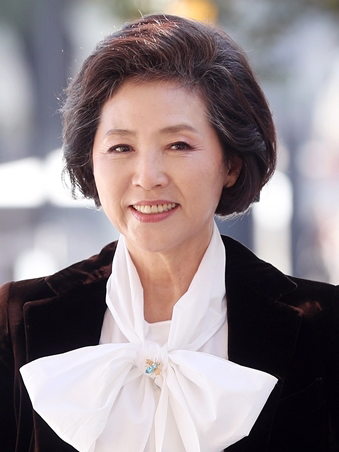Born in 1951 on Jeju Island, KO Doo-shim decided that she would be an actor after silver screen legend SHIN Seong-il visited her high school. She moved to Seoul right after graduation and worked at a trading company for a while, waiting for an opportunity to get a role. In 1972, she passed the open auditions held by TV channel MBC to join their cast of resident actors and later that year made her debut in the station’s series <Chief Inspector>. However, she quickly g...
More
Born in 1951 on Jeju Island, KO Doo-shim decided that she would be an actor after silver screen legend SHIN Seong-il visited her high school. She moved to Seoul right after graduation and worked at a trading company for a while, waiting for an opportunity to get a role. In 1972, she passed the open auditions held by TV channel MBC to join their cast of resident actors and later that year made her debut in the station’s series <Chief Inspector>. However, she quickly grew frustrated from only being offered minor parts, and eventually resolved to quit acting and go back to the company she worked for before. Two years later, a television producer contacted her and offered a role she deemed interesting enough to warrant a comeback, <Reed> (1974). Three years later, she would nab the Baeksang Arts Award for Best New Actress in TV for her role in <Purity>, therefore spurring on a steady flow of roles on television. After she made the jump to the big screen as the titular role in <The Woman Who Leaves Work In The Morning> (1979), she notably appeared in IM Kwon-taek’s <No Glory> (1980) and won the Best Supporting Actress at the Grand Bell Awards for her performance in <Jealousy> (1983). At the end of the 1980s, she was recognized as one of the most popular actresses, thanks mostly to her constant presence on television but also for the sympathy she would inspire with her portrayal of the quintessential devoted mother, the role type she had been almost exclusively cast as, even at the time of her burgeoning career. At the top of her form at the turn of the next decade, she won Best Actress in TV in 1990 (for <Fetters of Love>) and 1991 (for <The Dancing Gayageum>), before reaching the top with the Grand Prize in TV in 1993 for <My Husband’s Woman>. She is the actor who has received the most accolades from the award ceremonies held by the three big TV broadcast companies, MBC, KBS and SBS, and is also the only actor to have received the highest distinction in each of the TV-centered awards ceremonies. Although rare, her big screen appearances seldom come unnoticed. After a long draught in the 90s, she came back to movie roles as JEON Do-yeon’s mother in <My Mother, The Mermaid>, which is set in KO’s home country, Jeju Island. With the critically acclaimed <Family Ties> (2006), she reached recognition well beyond the Korean borders, winning Best Actress at the Thessaloniki Film Festival. The following year, the Korean president granted her the Medal of Cultural Merit (4th class). JANG Jin gave her in <Good Morning President> (2009) one of her rare opportunities to widen her acting range as she played the leader of the nation in one of the three segments. In 2019, she scored her biggest box office success so far with the hit disaster comedy <EXIT>.
Less







